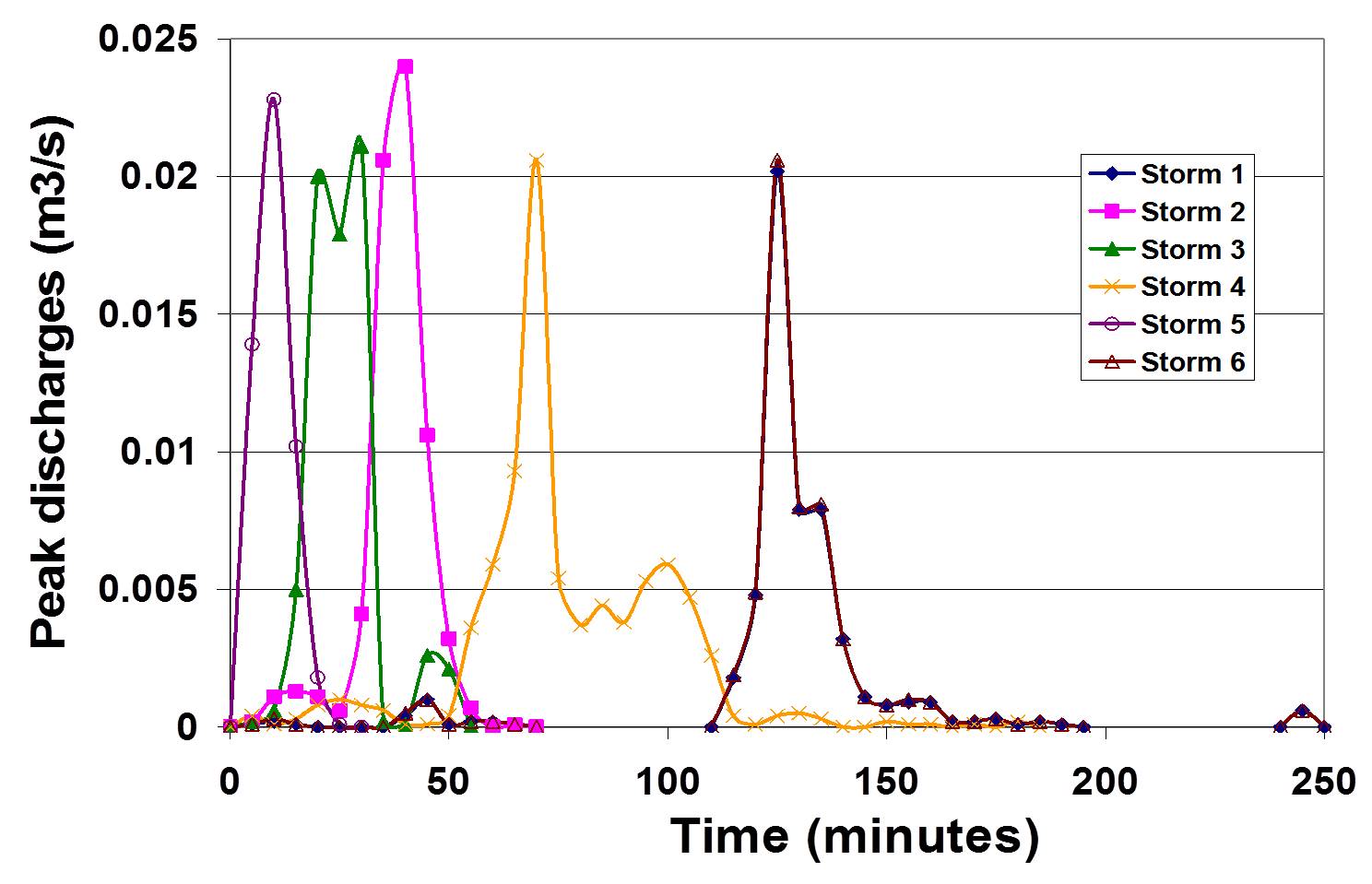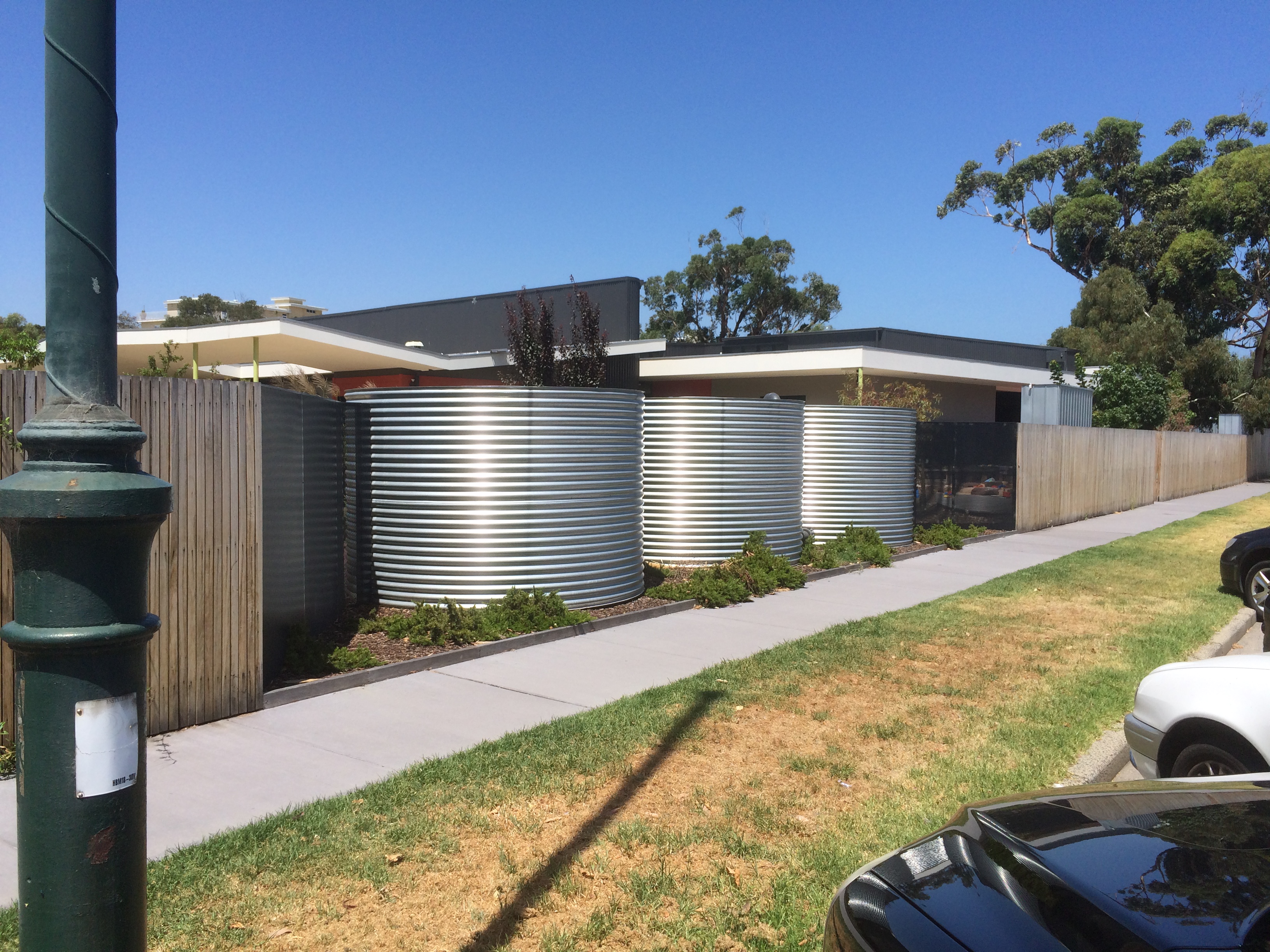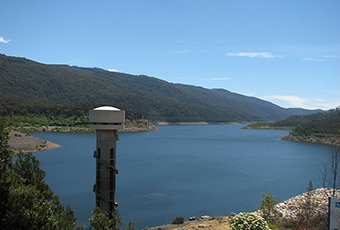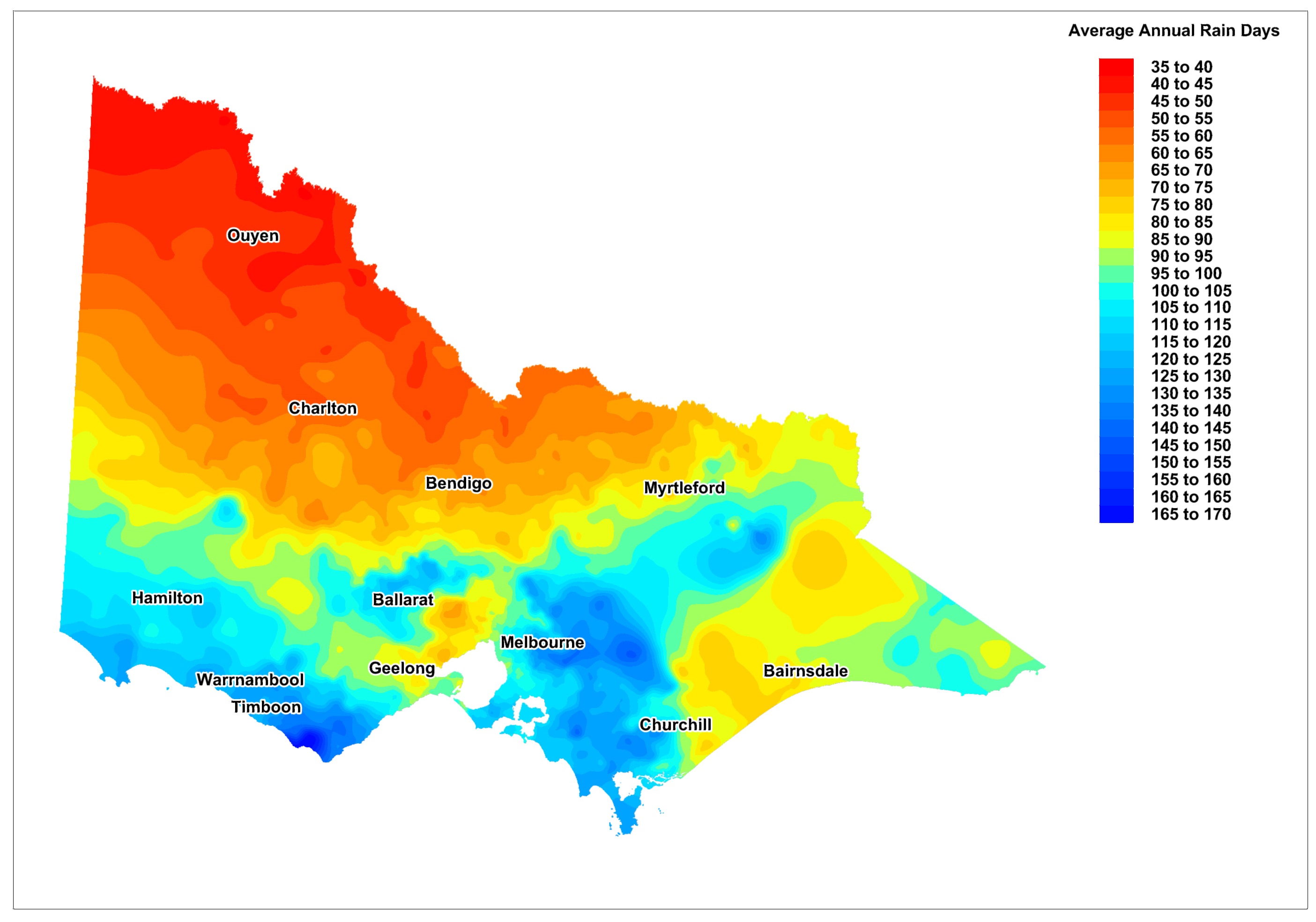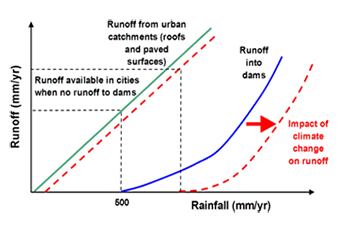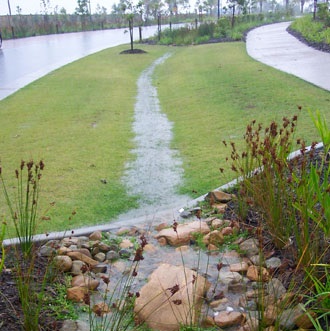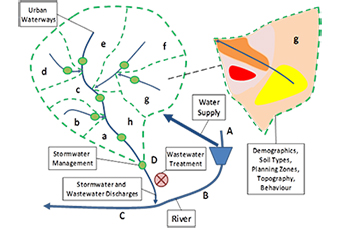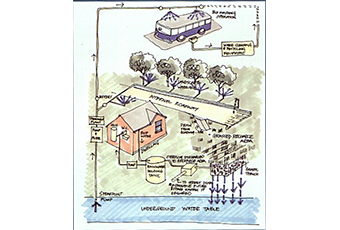Continuous simulation of hydrologic systems requires the use of long sequences of high resolution climate data. Continuing advances in stochastic rainfall methods indicates that continuous simulation is likely to become a practical tool for hydrologic risk assessment. This study examines the case for adoption of continuous simulation.
Blog
Incidental treatment trains in urban rainwater harvesting systems
This PhD thesis by Dr Anthony Spinks examined the water quality, incidental treatment train mechanisms and health risks of urban rainwater harvesting systems. It was an honour to be one of Anthony’s supervisors. In essence, this thesis argues that a series of incidentally occurring treatment trains contribute to the production of high quality freshwater from rainwater harvesting systems. Importantly, this thesis confirms and identifies the key behaviour of rainwater storages in recommending an appropriate guideline framework for greater utilisation of rainwater in urban areas.
Living Melbourne, Living Victoria. Greater Melbourne Systems Model – Modelling in support of the Living Victoria Ministerial Advisory Panel
The purpose of this investigation was to provide systems analysis of the water cycle for Greater Melbourne and advice in support of the Ministerial Advisory Council (MAC). This process aimed to generate discussion and deeper understanding of the detailed transactions that drive water cycle management throughout the region.
OLV Chief Scientist – Valedictory Comment
As reported in the Age recently, I initiated and agreed with the Department to end the contract for Chief Scientist at the Office of Living Victoria as at 24 November 2014. The documented role of the Chief Scientist at Office of Living Victoria was to provide advice...
The Battle to Do the Right Thing – Water Debate in Victorian Parliament 2009
The Battle to Do the Right Thing has a long history. The discussions below refer to two pivotal events involving substantial personal courage that were debated in the Victorian Parliament during 2009. Much has been stated on the need to modernise water management and...
Review of the Hill End Water and Sewerage Scheme
Summary Two significant and related issues confronted the managers of the Hill End water and sewage scheme: the potential for water shortages and the surcharge of untreated sewage to the environment. These concerns are particularly relevant during peak tourist...
The Relative Efficiency of Water Supply and Urban Roof Catchments
This study has analysed the relative efficiencies of runoff into dams supplying Brisbane, Melbourne, Perth and Sydney, and of rainwater harvesting in those cities. It is shown that both respond differently to drought and climate change forcing, with rainwater harvesting systems in cities exhibiting a more uniform performance across these stressors.
Integrated Water Cycle Management at Heritage Mews in Western Sydney
The “Heritage Mews” urban development is an integrated water cycle management project that applies a regime-in-balance stormwater management strategy which requires runoff volume from a developed site to be equal to the discharge from the site prior to development in the adopted critical design storm. Retention and infiltration technology, the first option of choice, was impractical at “Heritage Mews” because of the impermeable nature of its surface geology.
Stormwater Policy Insights From Systems Analysis Using Big Data
This paper outlines key stormwater management insights from initiation of water cycle management policies across multiple jurisdictions during the last decade. Systems Frameworks for Big Data analysis are presented as powerful processes for framing evidence based policy from the “bottom up” using all available data and integrating spatial and temporal scales of behaviour. It is a profound insight that waterways, land uses and stormwater management are inexorably linked to water cycle and town planning systems and are the foundations of successful water cycle management.
Figtree Place: A Case Study in Water Sensitive Urban Design (WSUD)
Figtree Place is a water sensitive urban redevelopment consisting of 27 residential units located in Hamilton, an inner suburb of Newcastle, NSW, Australia. The site uses rainwater tanks, infiltration trenches and a central basin where cleansed stormwater enters the unconfined aquifer for water retention and retrieval. A two-year monitoring program for roofwater, raintanks, hot water systems and first flush pits has commenced with samples taken from these sources tested for compliance with the Australian Drinking Water Guidelines. Total water saving of around 60% has been shown to be feasible as well as almost complete storm runoff retention.

